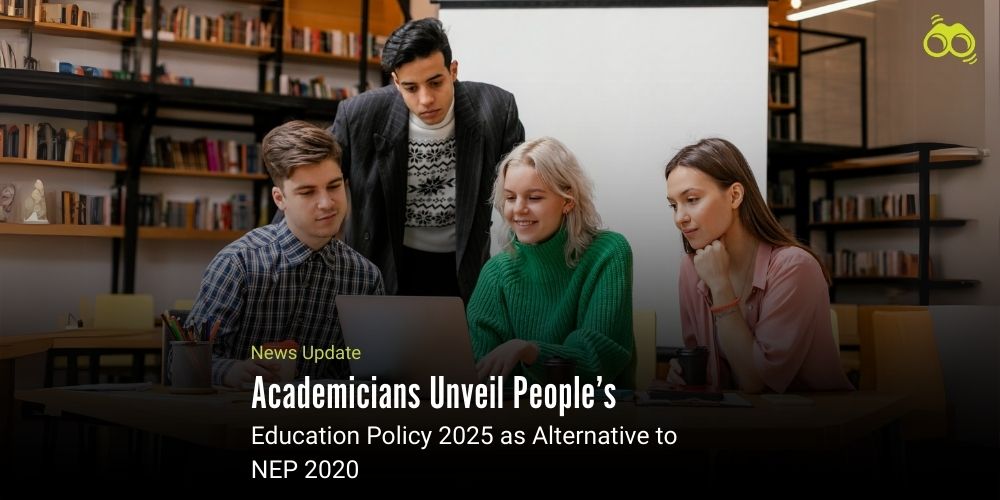 PEP 2025 Seeks to Reshape India’s Education System with Major Reforms
PEP 2025 Seeks to Reshape India’s Education System with Major Reforms
People’s Education Policy Calls for More Funding and State Control
|
May 27, 2025 |
A group of academicians has put forward an alternative to the National Education Policy (NEP) 2020, calling it the People’s Education Policy (PEP) 2025. They have stated that the policy will be finalised following nationwide discussions, ensuring broader participation in shaping its framework. The initiative seeks to challenge what its proponents describe as the "communal, undemocratic, anti-scientific, privatised, and commercialised education" promoted by NEP 2020, advocating instead for a secular, scientific, democratic, and universal approach to education.
According to K. Yogarajan, secretary of the Tamil Nadu chapter of the All India Save Education Committee, the PEP proposes a minimum allocation of 10% of the Union budget and 25% of the State budget for education. Additionally, it calls for education to be transferred to the State List, requiring constitutional amendments to facilitate this shift. The policy also supports the 10+2+3 education structure and recommends that formal schooling be extended to cover children aged 3 to 17 years.
Further, the PEP advocates for traditional classroom-based learning rather than online or hybrid modes, arguing that direct teacher-student interaction is fundamental to quality education. It also calls for the abolition of standardised entrance exams such as CUET and NEET. Additionally, the policy emphasises the need for permanent teachers instead of relying on guest or contractual staff. Moreover, it opposes the Indian Knowledge System, arguing that it distorts history and promotes pseudoscience.
Ramu Manivannan, former Political Science professor at the University of Madras, stressed the importance of effective university management and faculty appointments based on institutional requirements. In line with this, the first draft of the PEP was released by Manivannan and received by S. Bakthavatchalam, an office bearer of the Tamil Nadu High and Higher Secondary Graduate Teachers Association. This initiative reflects ongoing efforts to reshape India’s education landscape by promoting a more inclusive and publicly funded academic framework.
Editor's Note:
The proposal for the People’s Education Policy (PEP) 2025 presents an alternative vision for India’s education system, aiming to prioritise secular, scientific, and democratic principles. By advocating for increased government funding and reforms such as eliminating standardised entrance exams and ensuring permanent teaching staff, its supporters argue that the policy would create a more inclusive and publicly funded education model. While NEP 2020 has been widely debated, PEP 2025 seeks to offer a contrasting approach that addresses concerns about privatisation and accessibility. As discussions unfold across the country, the success of PEP 2025 will depend on how well it resonates with educators, policymakers, and the wider public. The push to transfer education governance to state authorities and amend the Constitution is a bold proposition that could reshape India’s academic framework.
Skoobuzz firmly believes that whether this proposal gains widespread support or faces challenges, it will undoubtedly spark important conversations about the future direction of education in the country.

0 Comments (Please Login To Continue)